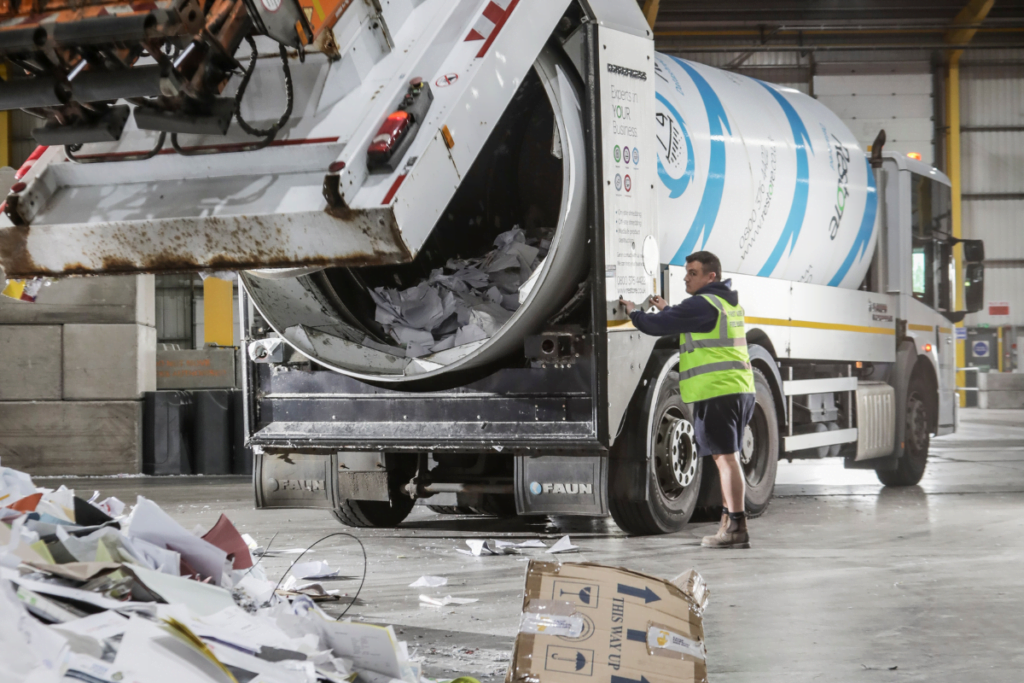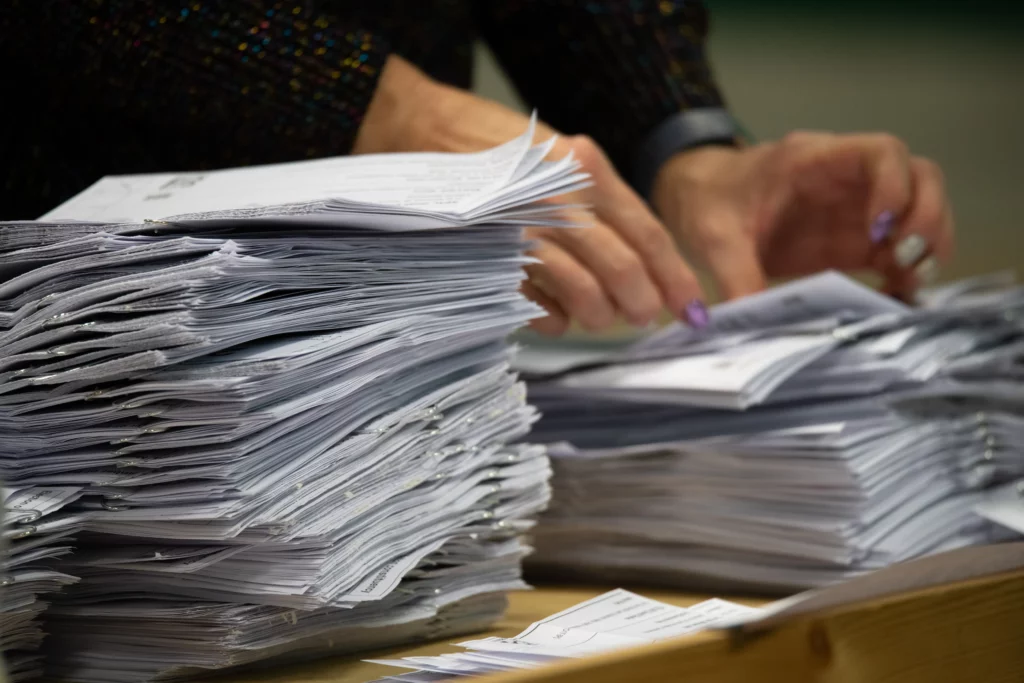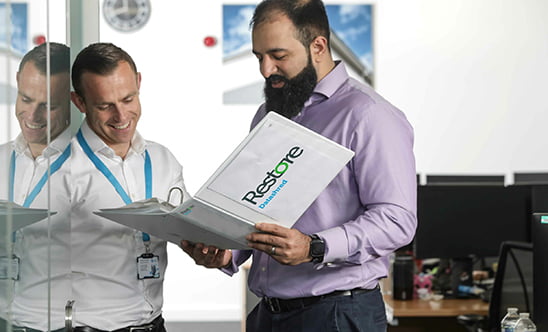We all store our data on these media from paper to plastic and metal. Data is protected by law and should be treated like gold dust, so putting compliance measures in place is essential.
Do you remember some of the larger data breaches from the past few years, the ones that made the news either because they were household names, for the sheer quantity of data stolen, or the scale of the consequences? Easyjet, British Airways, Uber and Travelex are all present on that list.

Is Cyber Security a Priority?
And it’s not only large organisations that are hit. The government’s Cyber Security Survey published in April 2023 revealed that 32% of all UK businesses had identified a cyber-attack in the previous 12 months. A further recent report from the insurance provider, Hiscox, drills down further and estimates that small businesses are targeted and breached at a rate of one per 19 seconds.
If you’re wondering how, it’s nearly all down to humans. About 95% of breaches are through error or human frailty (opening the phishing email, acting on its contents, throwing customer listings in the recycling bin, not being able to afford robust cyber security, and so on), while the remainder are from bad actors, such as dishonest colleagues and contractors.
But these are cyber-attack types of breaches. What happens when more tangible data on paper and hard drives go astray? Again, there have been newsworthy stories from the Crown Prosecution Service, who, a few years ago, mislaid crucial and incredibly sensitive evidence on DVDs, and from a couple of NHS trusts, who entrusted old hard drives to a dishonest handler who enabled the theft of tens of thousands of names and personal medical – and other – data.
The Question is: Why?
Even before GDPR was enacted in 2018, data protection regulations and the electrical waste directive, WEEE, were in place in this country, meaning throwing away old documents and electronic kits without taking appropriate precautions was, in fact, illegal.
There are some easy fixes…
An in-office or home-office shredder can work for a while. And, for the hard drives? If you go online, you can get creative with the array of suggestions for destroying an unwanted one. These range from vinegar, to sandpaper, to using a hammer and nail, to crushing, magnetising, or wiping/degaussing and then just sending them to the dump.
Easy fixes can bring quick wins BUT:
– they’re time consuming
– you need the kit to carry out these DIY destructions
– you may not destroy your confidential data sufficiently well for your 100% peace of mind.

And there are some even easier fixes
If you’re serious about every aspect of your business, including compliance with GDPR and WEEE, then choosing a professional data destruction company like Restore Datashred offers the most watertight solution. And it takes just one phone call, no faffing around with acid or cleansing software.
By speaking to one of our knowledgeable customer services team you can smoothly set up a collections schedule to keep a regular turnover of your confidential waste – both paper and hard drives – leaving your premises and ending up on our shredding blades.
Mostly around having our secure, lockable cabinets and bins at your site that are discreetly removed, at an agreed time, and immediately entered into our electronic audit system. Again, with security in mind, our trained, vetted secure collection operatives drive your confidential waste in GPS-tracked vehicles back to one of our destruction centres where passwords and CCTV cameras control entry to authorised colleagues only.
Simply, your waste paper and hard drives are removed and kept safe, and their contents secure, for shredding by our modern machines into the smallest fragments – from 20mm down to 2mm, depending on your needs – which are then securely transported to the appropriate entry point for recycling, re-using, or re-purposing. There’s no mess, no fuss, no time wasted or any risk of data falling into the wrong hands. We supply you with a certificate of destruction as proof of the process for your records and as proof of the protective shield you have thrown up against data fraud.
If that’s got you feeling like you could be an anti-fraud super-hero, all you really need to do is get in touch with one of our customer services team.
Contact UsShredding: Your Shield Against Data Fraud
There’s a little more to it than that. Mostly around having our secure, lockable cabinets and bins at your site that are discreetly removed, at an agreed time, and immediately entered into our electronic audit system. Again, with security in mind, our trained, vetted secure collection operatives drive your confidential waste in GPS-tracked vehicles back to one of our destruction centres where passwords and CCTV cameras control entry to authorised colleagues only.
imply, your waste paper and hard drives are removed and kept safe, and their contents secure, for shredding by our modern machines into the smallest fragments – from 20mm down to 2mm, depending on your needs – which are then securely transported to the appropriate entry point for recycling, re-using, or re-purposing. There’s no mess, no fuss, no time wasted or any risk of data falling into the wrong hands. We supply you with a certificate of destruction as proof of the process for your records and as proof of the protective shield you have thrown up against data fraud.

 Customer Login
Customer Login


